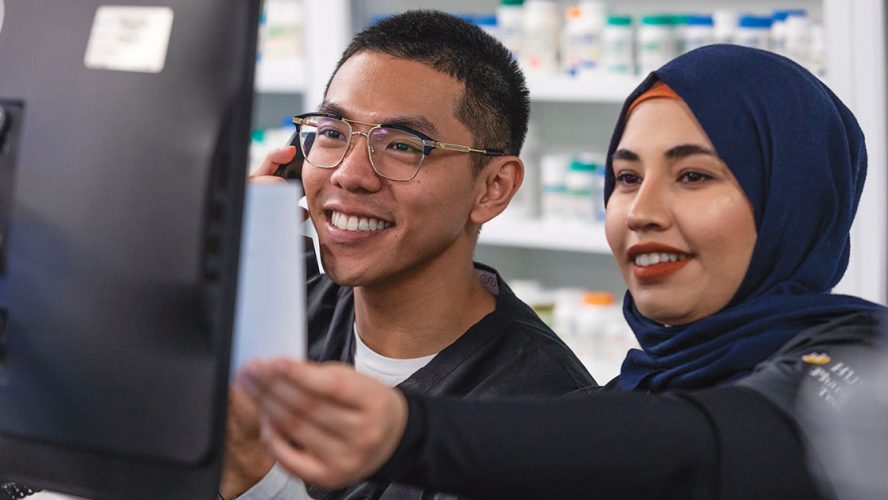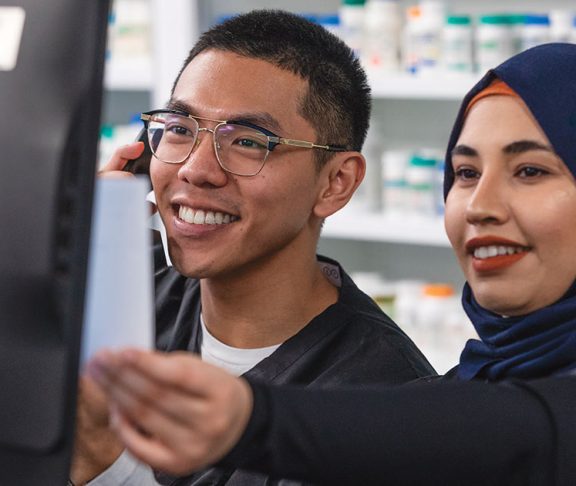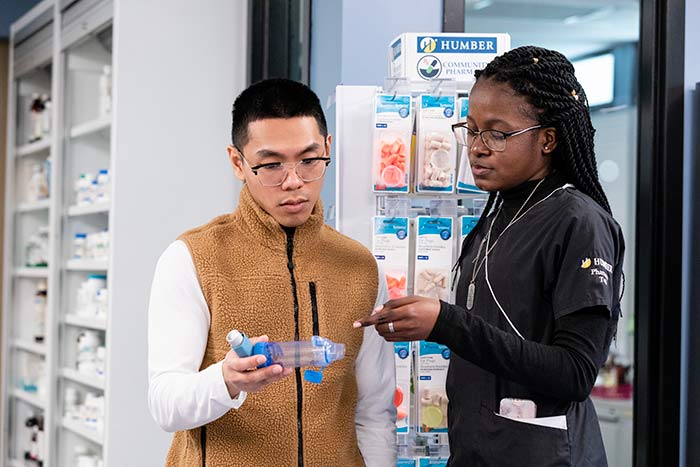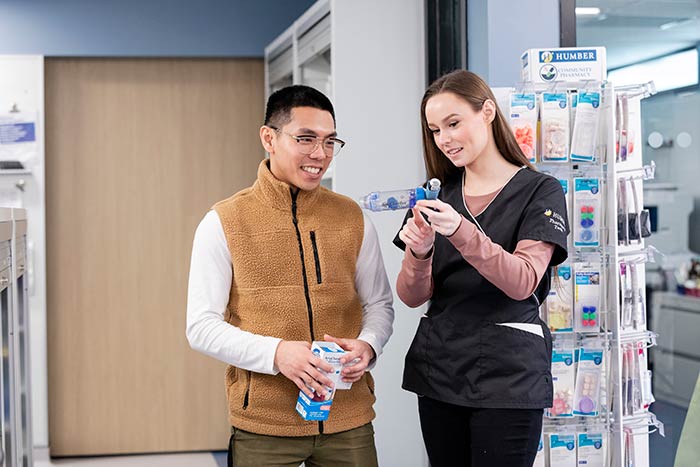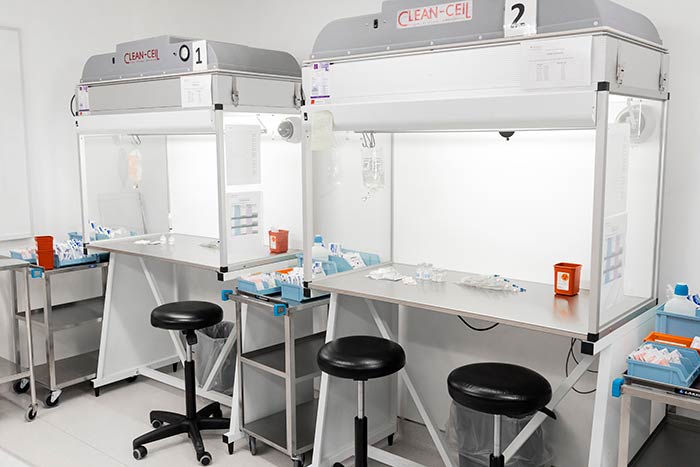Pharmacy technicians play a critical role in Canada’s health care system — and are often the first point of contact patients have in a community pharmacy.
Through its Pharmacy Technician program, Toronto’s Humber College is significantly contributing to Canada’s next generation of pharmacy technicians. Graduates of the two-year diploma program are eligible for an array of rewarding and exciting career options, such as working in community or hospital pharmacies, long-term care facilities, and the pharmaceutical industry.
The program emphasizes hands-on experiential learning in state-of-the-art lab facilities complemented by clinical placements. The low student-to-teacher ratio makes for a learning environment where students receive plenty of one-on-one attention from their instructors — all of whom are practising experts in the pharmacy field and licensed with the Ontario College of Pharmacists. Courses and labs are designed to replicate real-life pharmacy settings so that students are truly prepared when they enter the workforce.
Kayla Amaral, who’s in her final semester of the program, describes the entire student experience as “awesome”. “The faculty genuinely want us to succeed, the facilities are top-notch, and the work placements allow us to help the community within our scope while we’re still learning,” she says.
Extra rigour through accreditation requirements and work placement experience
“The program really prepares students for the high demands of a fast-paced profession,” says Carol Levy, Program Advisor of the Pharmacy Technician program. Adding extra rigour to the program is the fact that it’s accredited through the Canadian Council for Accreditation of Pharmacy Programs (CCAPP), the body that grants accreditation to pharmacist and pharmacy technician programs across Canada which meet the accreditation standards. “As part of accreditation requirements, students must have a minimum of 360 hours of experiential learning before they graduate,” says Levy.
